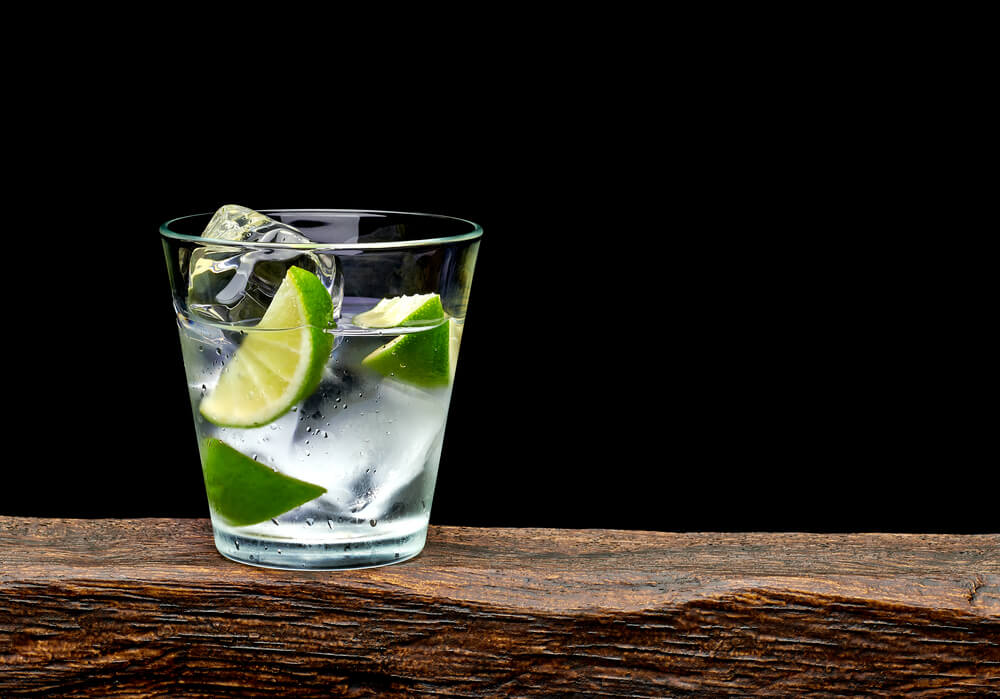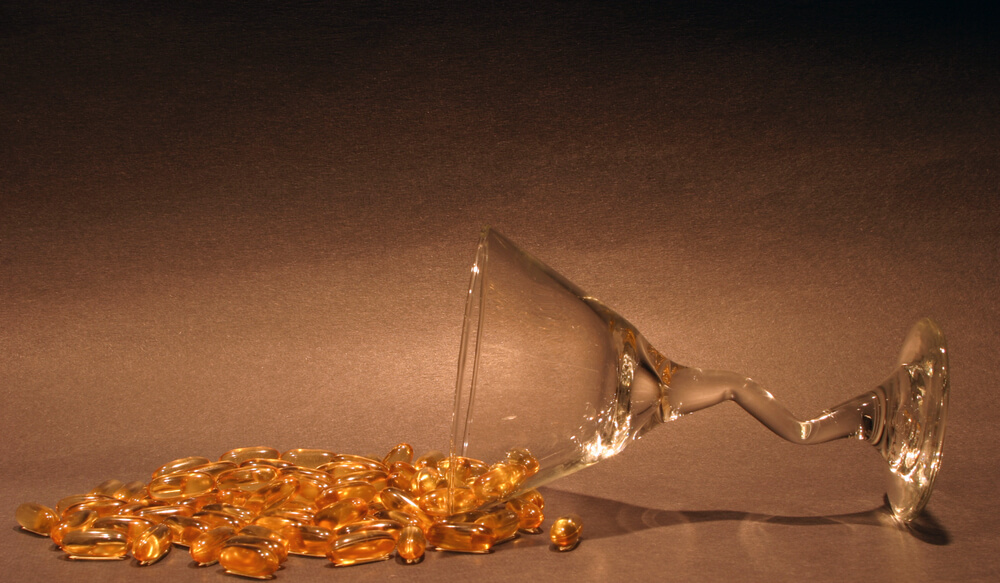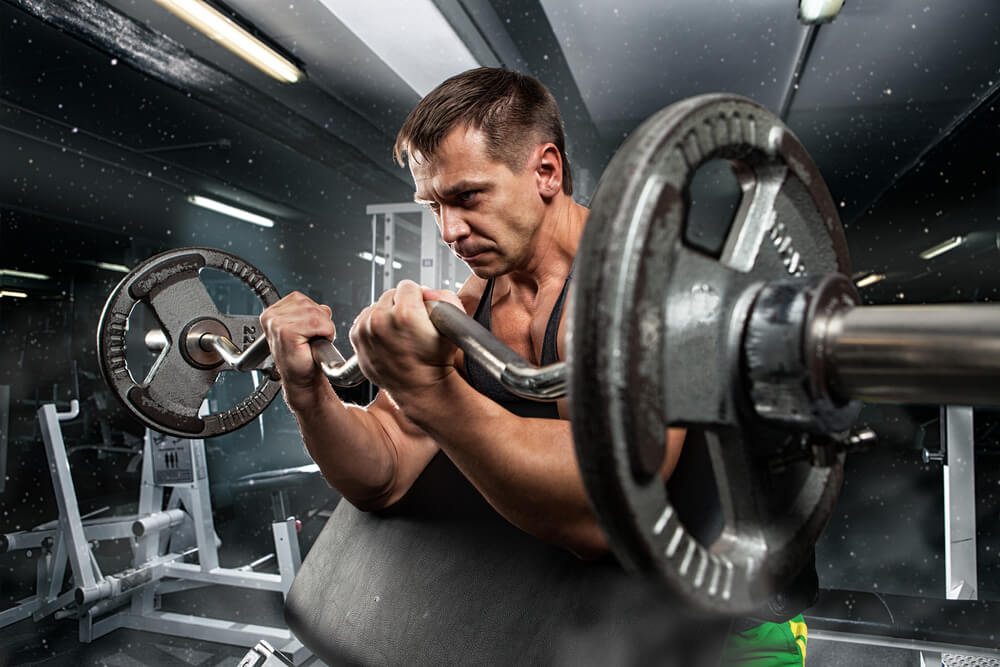
The debate is as old as fitness itself! Can you drink and be fit? Here’s your answer—and it may surprise you!
Human beings have been drinking alcoholic drinks in one form or another for thousands of years.
It has become part of our culture. But how does alcohol impact on fat loss and/or muscle gain? And, do we really understand the effects alcohol can have on our training goals? I’ve found that there are a few benefits and pitfalls with alcohol. You can decide for yourself whether or not to indulge.
The Good News And Bad News.
Many studies have shown that alcohol can diminish performance (physical and mental), create possible addiction, diabetes and liver disease. However, people still enjoy its liberating influence and it certainly plays a big role in many of society’s traditions, social gatherings and practices.
First, let’s look at some good news. Many studies suggest that moderate drinking can be good for the heart and circulatory system and may protect against type-2 diabetes and gallstones. Other studies claim that alcohol can actually help with weight control, boost brainpower, reduce stress and support healthy bones. Polyphenols in red wine have been found to have antioxidant properties. These are great for good gut bacteria.
On the flip side, I’m sure you’ve heard of the phrase empty calories when the topic of alcohol is raised. This simply means that unlike macronutrients (carbs, proteins and fats), alcohol supplies excess calories without nutrition.
That’s the empty calories! Also, it’s the first fuel to be used as energy when combined with carbs, fats and proteins. In other words, it postpones the fat-burning process. As a result, this can actually lead to increased fat storage. So when you drink, your body won’t burn fat!
But, that won’t stop the weight loss process altogether. It simply postpones it. Alcohol doesn’t store as glycogen. You’ll immediately go back into ketosis/lipolysis after the it is used up.
Here are six reasons why, and ways that alcohol can sabotage your weight loss efforts while possibly impacting your health. Decide for yourself if you still want that sip!
6 Ways Alcohol Can Sabotage Your Fitness Goals…
#1 Alcohol Causes Dehydration
Alcohol is a diuretic. That means it causes water loss and dehydration. Along with this water loss, the body also loses important minerals, such as magnesium, potassium, calcium and zinc. These are vital to energy and focus, the maintenance of fluid balance, bodily chemical reactions, as well as muscle contraction and relaxation. Further, dehydration can cause muscle cramping, twitching and gastrointestinal discomfort.
#2 Alcohol Is Metabolized Differently
When alcohol is consumed, the body simply views it as a toxin. When the body is focused on processing alcohol, it ‘s unable to properly digest proteins, carbs and fats. Therefore, these more important calories are carried away and converted into body fat to be stored for future energy.
#3 Alcohol Brings Thirst
Bars often serve salty foods, like peanuts, crisps and pretzels, together with alcoholic drinks. Why? This is because salt and alcohol induce thirst, making you want to drink more. The calories from the snacks and the alcoholic drinks accumulate. This will lead to excess weight gain.
#4 Alcohol Brings Hunger
Skipping a meal or meals in anticipation of the extra calories from alcohol is a bad idea. An empty stomach will only enhance the effects of alcohol and make you eat more as your inhibitions are lowered and impulsivity increases. What happens then? You’re more likely to choose fast or fried foods that will add to your waistline. Watch for this!
#5 Alcohol Lowers Inhibition
Taking the previous point further, because alcohol has only empty calories, it doesn’t give you the feeling of fullness that healthier drinks provide. Also, because it affects your brain, alcohol cuts your inhibitions and reduces your willpower to resist eating more. This effect makes it an excellent aperitif! I’ve seen this firsthand. The more you drink, the hungrier you get. And, the greater the tendency to overeat!
#6 Alcohol Can Damage Your Stomach And Lower Testosterone
Alcohol is a byproduct of yeast digestion. It can have an irritating effect on the lining of your stomach. It can also gradually weaken your kidneys and liver, leading to serious health problems and even death. Any weakening of the stomach will lessen the rate and efficiency at which food is digested. This ultimately interferes with a healthy metabolism and the weight loss process.
Testosterone is one of the most powerful fat loss tools. It is reduced whenever alcohol is consumed, halting its full potential as a fat burner. It’s also an anabolic hormone. This contributes to gains in lean muscle mass. Lowered testosterone means fewer muscle gains, and less muscle means a lowered metabolic rate.
When looking at these six points, it’s easy to see that alcohol can be the enemy when it comes to weight loss. It adds extra calories to your diet, alters normal metabolic and digestive processes and prompts you to eat more.
Not only are the extra calories a hindrance, but also the changes in how foods are processed will likely turn those extra calories into unwanted body fat.
Not too appealing?
Didn’t think so.
What Are The Best Alcohol Choices?
Taste is an individual choice. I find that people will usually choose what they like when it comes to taste, rather than what I advise them based on health. A few ideas worth considering are to drink alcohol with a lower calorific value and a higher alcohol percentage (like wine and vodka). Less will be consumed, meaning lower overall calorie consumption.
Avoid high-calorie liqueurs because these are extremely deceptive (they taste so good). They will add enormously to overall caloric content.
As mentioned, drinking will relax your inhibitions and cause you to compromise on nutritional habits. If drinking beer, try a lower calorie alternative and drink water between any alcoholic drinks. This increases feelings of fullness and may help you to prevent over consumption. It will also help keep you hydrated as best as possible.

Be Smart!
When socializing, be what I like to call portion conscious. One recent study found that the average amount of wine and spirits served at restaurants was about 40 % more than a standard drink.
Also, ordering a pint of beer rather than a bottle means an extra 4 ounces. Then there are the smoothie style mixed drinks, like a frozen margarita in a mug. These can have nearly 600 empty calories. That’s, as much, or more, than many entire meals would provide!
Be carb smart. Vodka sodas have become the customary skinny cocktail in the UK and US because both vodka and club soda are carb-free. Twelve ounces of ultra-low-carb beer, or 5 ounces of dry wine, has a little more (about 3 to 4 grams respectively). But, a regular beer has at least 10 grams. That’s about as much as a standard cup of brown rice. Just 4 ounces of Coke has about 12 grams. The same amount of sour mix will cost you a massive 25 grams of carbs.
One simple method I like to use is if you’re drinking with a meal or appetizer that has high carbs, scaling back your drink is a great idea. One regular beer, three nights a week, adds up to over 1,500 surplus carb grams a year. That’s as much as 100 slices of white bread!
Mind your mixers. A 100-calorie shot of tequila turns into a 500-calorie margarita once it’s swirled into a sugary mixer. But you can make a healthier, trimmed down version of umbrella drink cocktails. Eight ounces of pina colada mixer has 250 calories. For a third of the calories and a lot more nutrients, blend a handful of ice with one-quarter cup each 100% pineapple juice, coconut almond milk and sliced banana. Secret tip: Use watered down, frozen, unsweetened fruit to create a cocktail base brightened up with antioxidant rich add-ins like fresh grated ginger or cinnamon.
Know Your Healthy Moderation Level When It Comes To Alcohol And Fitness.
Research shows that both men and women who drink in moderation are less likely than non-drinkers to be obese.
Why?
Due to its apparent protective effect against coronary heart disease (CHD), which happens to be the number one cause of death globally. The key word there was moderate.
Why?
Any more than moderate drinking is linked to a greater risk of being overweight or obese.
So what’s moderation? For a woman, it’s one standard drink per day. For a man, it’s two. One standard drink is either a 1.5-ounce shot of 80 proof distilled spirits, 5 ounces of wine or 12 ounces of beer. Each of these has about the same amount of alcohol and will therefore raise your blood alcohol concentration fairly equally. Keep in mind: You can’t roll your alcoholic beverages over. So abstaining during the week and downing 7 to 14 drinks over the weekend doesn’t count as healthy or moderate drinking. It’s surprising how many people like to believe this!
On a given day, 36% of men and 21% of women consume alcohol. Most don’t exceed the recommended limits. If you’re not sure if you are overdoing it, track your intake for a week or two. I’ve known many people who say they think they’re light drinkers, only to find out that they are well above what’s considered moderate after logging their consumption.
How To Get Alcohol Out Of Your System & Your Supplements
Extensive research suggests that taking supplements, on a regular basis, as well as before and after alcohol consumption, can help to limit the negative effects that alcohol can have on your body. B vitamins and multivitamins are great.

Alcohol is what I call an anti-nutrient!
This means it takes away more from your body than it supplies. It also destroys some nutrients and disturbs digestion and absorption of food. This is why drinking too much will lead to multiple deficiencies of nutrients, especially B vitamins, vitamin C, magnesium and zinc.
Folate is a B vitamin whose absorption in blood and tissues is inactivated and blocked by alcohol. One function of folate is to help guide the development of an embryo’s spinal cord.
Later in life it has equally important roles.
One of the biggest is helping to build DNA. This explains why alcohol consumption can increase your cancer risk. Other B vitamins, especially B12 and B6, are essential for heart health and hormone balance.
Magnesium, a mineral often low in the diet and also depleted with exercise, is especially affected by drinking alcohol.
Probiotic and prebiotic supplements have been shown to reverse or prevent alcohol-induced dysbiosis (imbalance of gut bacteria). This will reduce the intestinal hyper- permeability, liver injury and oxidative stress that alcohol causes. Probiotics will also support your digestive health and immune system.
Glutamine is one of the top supplements for fitness people. It’s an amino acid with benefits for your gut and liver. Taking Glutamine as a supplement before and after drinking alcohol can help to limit the damage that it causes.
N-acetyl cysteine (NAC) is also a form of amino acid. It’s known to reduce the toxicity caused by alcohol. Taking NAC before drinking alcohol will therefore also limit damage to the liver and help to lessen hangover symptoms if you do have a little too many!
That’s no excuse. Drink responsibly. Milk Thistle is a herb. It’s powerfully liver supportive and will have similar effects.
Conclusion
I hope I’ve opened your eyes a little more to the effects that alcohol can have on you with regards to your training and overall fitness goals. If you are serious about reaching your end target, then perhaps you should consider the effects drinking can have on you and how it will slow down the whole process.
In the end, it comes down to personal choice. But, it may be wise to limit consumption and enjoy alcohol sparingly while also enjoying a healthy lifestyle.
– By Keith Cormican, RD
Latest posts by Terry M (see all)
- Garage Gyms - Aug 1, 2018
- Kettlebells – Why They Should Be Added To Your Routine. - Jul 24, 2018
- Weight Belts: What Are They Really For? - May 31, 2018











[…] or indulge in a few cocktails, which can complete derail your weight loss attempt (one night of drinking will often undo all the work you put in at the gym throughout the […]